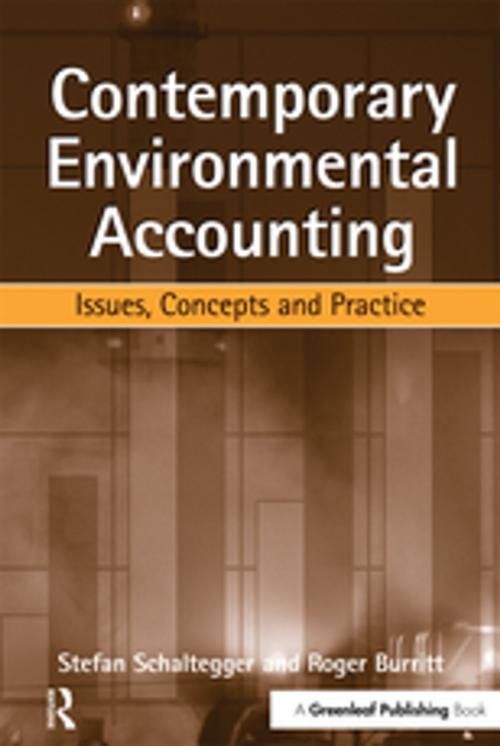Contemporary Environmental Accounting
Issues, Concepts and Practice
Business & Finance, Business Reference, Business Ethics| Author: | Stefan Schaltegger, Roger Burritt | ISBN: | 9781351282505 |
| Publisher: | Taylor and Francis | Publication: | September 8, 2017 |
| Imprint: | Routledge | Language: | English |
| Author: | Stefan Schaltegger, Roger Burritt |
| ISBN: | 9781351282505 |
| Publisher: | Taylor and Francis |
| Publication: | September 8, 2017 |
| Imprint: | Routledge |
| Language: | English |
Contemporary Environmental Accounting: Issues, Concepts and Practice has been written by two of the world's leading experts in the field in order to provide the most comprehensive and state-of-the-art textbook on environmental accounting yet attempted. The book is suitable for both undergraduate and graduate students and their teachers, professional accountants, and corporate and organisational managers. Although no prior knowledge of environmental accounting is necessary to understand the critical issues at stake, academic accountants will also find that the book provides a useful introduction to the topic. The goals of the book are to discuss and illustrate contemporary conceptual approaches to environmental accounting; to make readers aware of crucial controversial topics; and to offer practical examples of how the concepts have been applied throughout Europe, North America and Australia. In order to increase the usefulness of the book for relevant courses, each chapter concludes with a set of questions for review. This book is essential reading for all those who are interested in how environmental issues influence accounting.A solutions manual is available on request with the purchase of this book.
Contemporary Environmental Accounting: Issues, Concepts and Practice has been written by two of the world's leading experts in the field in order to provide the most comprehensive and state-of-the-art textbook on environmental accounting yet attempted. The book is suitable for both undergraduate and graduate students and their teachers, professional accountants, and corporate and organisational managers. Although no prior knowledge of environmental accounting is necessary to understand the critical issues at stake, academic accountants will also find that the book provides a useful introduction to the topic. The goals of the book are to discuss and illustrate contemporary conceptual approaches to environmental accounting; to make readers aware of crucial controversial topics; and to offer practical examples of how the concepts have been applied throughout Europe, North America and Australia. In order to increase the usefulness of the book for relevant courses, each chapter concludes with a set of questions for review. This book is essential reading for all those who are interested in how environmental issues influence accounting.A solutions manual is available on request with the purchase of this book.















